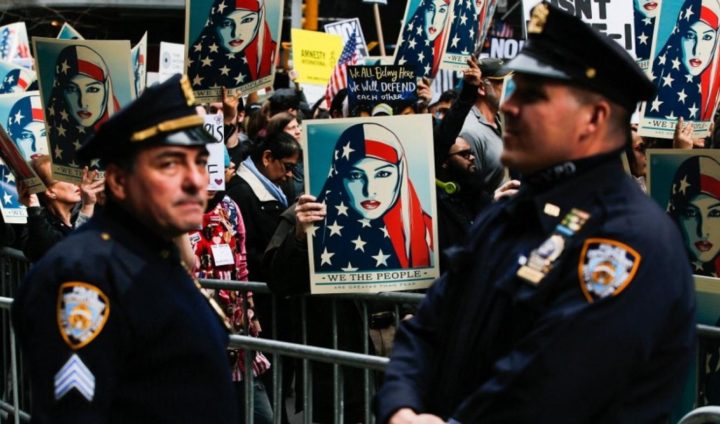Alaa Massri, at the age of 18, experienced an arrest during the summer of 2020, a time when widespread protests across the United States condemned the killing of George Floyd, an unarmed Black man, during a police arrest for allegedly using a counterfeit bill.
Living in Miami, Florida, Massri actively participated in organising some of these protests, proudly wearing her hijab, a head covering she had worn for 12 years as part of her religious identity. While demanding justice, she was among the more than 10,000 people arrested during the protests.
What made Massri’s arrest stand out was the disrespectful treatment she faced because of her hijab. Despite explaining its religious significance, officers demanded she remove it for the booking photo. Disregarding her plea, an officer forcibly took off her hijab, exposing her hair. This photo was then spread on social media, and she faced harassment and attempts to monetise the image.
The hijab holds great significance in Islam, representing modesty, privacy, and cultural identity for Muslim women. Forcing its removal violates their religious and civic rights, especially when done in front of strangers.
Unfortunately, there are no federal laws protecting a woman’s right to wear a hijab during arrests or preventing officers from removing it. Each state has its own policies on religious coverings during arrests.
In response to Massri’s case, over 330,000 people signed a petition condemning the treatment by the county corrections department. This led to some positive changes, as a friend informed Massri that another hijab-wearing woman’s rights were respected during an arrest five months later.
Other cases of Muslim women facing similar challenges have surfaced across the US. For instance, Jamilla Clark and Arwa Aziz in New York filed a class-action civil rights lawsuit in 2018 against the NYPD for forcing them to remove their hijabs during booking photos. This led to a change in policy allowing religious head coverings, with some exceptions, during arrests in the NYPD.
Religious freedom in the US is protected by the First Amendment of the Constitution. However, there have been legal challenges and lawsuits to ensure that power is not abused in targeting religious practices.
Although there is progress in some police departments, there are still instances of women being forced to remove their hijabs during arrests in different parts of the country. Islamophobia appears to play a role in such cases, with some officers displaying anger and suspicion towards Muslim women wearing hijabs.
The experience of being forced to remove their hijabs has profound effects on these women. Some, like Massri, have decided not to wear it anymore, feeling a sense of loss of control and power. Others, like Kadi, have fought back through lawsuits and public awareness campaigns.
Overall, the struggle for the rights of Muslim women to wear hijabs during arrests continues, with advocates seeking to create awareness and enforce religious freedom protections.
Source: Middle East Eye







